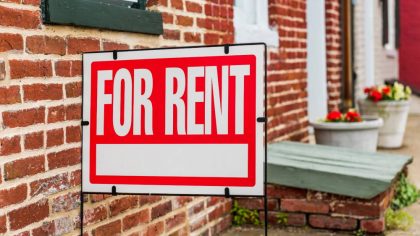When searching for a new home, two popular options are condominiums (condos) and apartments. Both offer convenient housing solutions, but there are some key differences between owning a condo versus renting an apartment that you’ll want to consider before making a decision. When evaluating housing options, condominiums and apartments both have appealing benefits, but also key distinctions in ownership structure, amenities, costs, and lifestyle considerations that renters and buyers should thoroughly research. A condominium represents ownership of your individual unit plus shared ownership in common spaces, while an apartment refers to leasing a unit in a larger rental complex with less control and financial stake.
As you search for your ideal home, reflect deeply on whether priorities like customization, investment potential, community events, simplicity of maintenance responsibilities, pet policies, or cozy spaces align more to condominium living. Or does the flexibility, lower move-in costs, and convenience of renting match your current life vision? Tour model units and speak to residents to get authentic perspectives. Create spreadsheets to compare expenses like mortgages or rents, property taxes, insurance rates, homeowners association or amenities fees. Consult experienced real estate professionals to ensure you understand all contractual terms and community bylaws before signing anything. With some soul-searching and smart sleuthing, you’ll discover the housing situation that best fuels your wellbeing.
This guide covers everything you need to know when weighing condos versus apartments.
Condo Pros
Condos allow owners to live in amenity-rich apartment complexes with higher-end builds and finishes compared to basic apartment buildings. Condos come with several advantages that may make them an attractive housing choice over renting. Condos can provide similar square footage and amenities as single family homes for a more affordable price, especially in urban areas where land is limited. The location of many condos allows easier access to public transit, retail shops, and downtown office complexes compared to remotely located standalone houses.
Ownership and Equity
Unlike an apartment, you own a condo. This means you can build home equity as you pay down your mortgage or as the property appreciates in value over time. Equity gives you borrowing power for future needs. When contemplating whether a rental apartment or owned condominium is the optimal abode, comparing the ability to construct monetary value in the property long-term is often insightful. As a condo owner, you hold legal title to your specific unit, register it in your name, and leverage your financial stake in the entire building complex to access loans or sell later at a profit hopefully. It’s a fascinating concept that your monthly mortgage dollars gradually transition to net worth tied up in physical walls and shared spaces surrounding you. Condo living intertwines you with neighbors also investing their nest egg here. There may be motivational value in that.
Customization
Since you own the property, you can customize and renovate the interior of your unit based on your preferences. This allows you to put your own personal touches on your home.
Potential Appreciation
Your condo can gain value over time, allowing you to build wealth through real estate. The equity can be tapped later in life if needed.
Tax Benefits
A portion of your mortgage interest and property taxes may be tax deductible, providing potential savings each year. As you weigh the pros and cons of renting an apartment or purchasing a condominium, do not overlook the allure of possible tax relief options unique to condo ownership. One popular financial perk involves legally deducting specific homebuyer expenses on your annual income tax return, which directly reduces your overall tax burden each spring. Consult a trusted accountant to fully explain the nuances, but essentially a fraction of your annual mortgage interest owed to the bank and mandatory community property taxes gets subtracted from your gross pretax income. Always consult an accountant to understand tax implications.
Condo Cons
However, some downsides exist to condo ownership that you’ll need to weigh. Condo owners pay homeowners association (HOA) fees each month to the management team that handles maintenance issues in common spaces. Closing costs and agent commissions to buy and later sell a condominium can tally 4-6% of the property value – money apartment dwellers don’t spend. Policy restrictions may prohibit certain rental terms or access to amenities for tenant occupants rather than direct condo owner residents. Policy regulations may prohibit certain home-based businesses, size of pets, or décor customization of your unit. Noise from adjacent units above, below, and on the same floor can be an issue in a multi-unit condo complex for some owners and tenants.
Monthly Fees
On top of your mortgage, you have to budget for monthly condo association fees to cover maintenance, amenities, insurance andmore. Fees can increase over time.
Policy Restrictions
The condo association may have strict guidelines on pets, renovations, noise levels and other rules. Make sure you can live with the restrictions before purchasing.
Shared Spaces
Common walls and shared amenities means occasional loud neighbors and lack of privacy at times. Consider the community before purchasing.
Special Assessments
If major repairs are needed for common facilities, the association can implement special assessment fees. These one-time costs can involve thousands of dollars.
Apartment Pros
Renting an apartment comes with its own set of advantages too. Paying monthly rent absolves you of countless stresses that condo boards handle. And it’s delightful flexibility knowing that if appliances falter or the upstairs neighbors annoy, you can request unit swaps or simply not renew next year. The no strings attached, “it’s not my problem” mindset carries legitimate appeal for renters focused purely on inhabiting livable shelter without administrative duties. Leases provide flexibility so tenants can relocate fairly easily if they dislike noise issues, floor plan layouts, or property management in their apartment complex. Renters aren’t responsible for maintenance costs related to the upkeep of floors, walls, appliances provided by the landlord or property management, they don’t have to plan for big ticket maintenance items like roof replacement that condo owners pay a part of through HOA fees. As a tenant you’ll never research HVAC repair quotes, negotiate pipe leak insurance claims, or fund new lobby furniture. For apartment dwellers who move frequently, giving 30 days’ notice provides flexibility that the 2-month condo sales process doesn’t match. Short term leases allow flexibility for tenants to test out new neighborhoods or accommodate life changes without lengthy financial commitment.
More Flexibility
Renters aren’t locked into a lengthy mortgage. You can more easily relocate for new job opportunities. Landlords typically require 30 days notice before moving out.
Fewer Responsibilities
You don’t have to worry about property taxes, home repairs and maintenance costs. These obligations all fall on the landlord.
No Risk of Special Assessments
An apartment renter will never receive a bill for surprise repairs or improvements. The landlord shoulders all these costs.
Shorter Lease Terms
Many apartments only require 12 month leases. So if you dislike the community after a year, you can easily move somewhere else. Condo sales can take 45-60 days to close.
Apartment Cons
Renters forfeit opportunity to gain equity that could come through land or housing price appreciation over time as an owner. The landlord may restrict customization of your unit in terms of paint colors, flooring changes, or decor elements. Some key downsides exist with apartment living, however:
No Ownership
You don’t build any home equity by renting. Nor can you customize units like with condo ownership. Renters forfeit opportunity to gain equity that could come through land or housing price appreciation over time as an owner.
Rent Increases
Landlords can increase your rent year-to-year. Your housing costs may grow faster than if you locked into a fixed rate mortgage.
No Tax Breaks
Unfortunately rent payments do not provide tax deductions like mortgage interest and property taxes. No opportunity for savings exists.
Lack of Stability
Landlords can choose to not renew your lease. And if they sell the building, new management may implement major changes.
Bottom Line
Weighing the pros and cons involves assessing your housing priorities. Determining your ideal housing situation amid the rent versus buy debate necessitates deep reflection on lifestyle priorities now and in the future. Beyond comparing straightforward calculations of monthly costs or equity potentials, envision how factors like customization freedom, community politics, pet policies, stability level, and more would truly impact your daily life. For instance, apartment dwellers sacrifice the pride and investment value of ownership, but regain flexibility to navigate life changes freely without prolonged selling hassles. Similarly, condominiums promise equity-building tax advantages yet introduce stricter alteration guidelines or board approval processes for even minor modifications. And while both options provide social connections with nearby neighbors, condo policies and politics often dig deeper into community affairs. So thoughtfully analyze your current stage of life and career, relationship status, anticipated mobility plans, pet family, and willingness to address maintenance issues. Which home features matter most: sprawling floor plans, luxury amenities, access to trails, flexibility to travel more? Then objectively balance the financial ramifications against the lifestyle impacts that resonate for your household vision. Consult qualified real estate brokers to clarify key considerations too. Embracing mindful discernment now leads to happier housing that fuels your family’s dreams. Consider aspects like flexibility, customization, community policies, stability and more when deciding between condos and apartments. If owning, building equity and leveraging tax advantages is important, a condo may be the right fit despite potentially higher monthly costs and stricter policies.
Evaluate all key impacts before choosing to provide yourself the best housing experience.
Seeking the Ideal NYC Room?
Imagine not just an ordinary room, but a lively community waiting to be called ‘home’. SharedEasy Coliving welcomes you to a new way of living! Discover our stylish, fully-equipped rooms, designed to complement your dynamic New York life.
Make Your Move Now:
Tap “Get Offer” or dial +1 929-575-5792 to explore how SharedEasy can elevate your living experience. Enjoy the convenience of flexible leases, inclusive amenities, and rooms prepped for immediate move-in. Your vibrant NYC community is calling. Become part of the SharedEasy family today!



